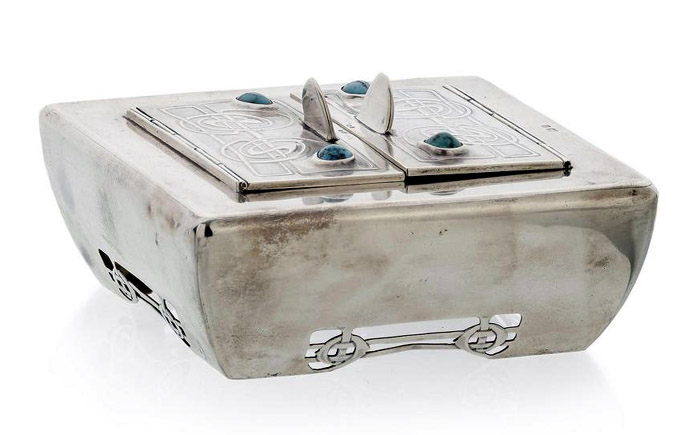Learn about antiques and collectables...
Click on a category below to show all the entries for that category.
Learn about and understand the items, manufacturers, designers and periods as well as the specialist terms used in describing antiques and collectables. Either click one of the letters below to list the items beginning with that letter, or click on a category on the left side of the screen to list the items under that category.
Liberty & Co.
The world renowned department store Liberty, was originally founded in 1875 as a furniture and drapery shop in Regent Street, London and was known as "East India House".
The business was established by Arthur Lazenby Liberty, (1843-1917). As the original name of the shop suggests, there was a strong emphasis on Oriental & Moorish objects, furniture and fabrics as well as more traditional European items. Under the heading of "curios", he also sold Japanese bric-a-brac of all kinds.
East India House was one of the first major shops to stock extensively products of the Arts and Crafts movement. Goods subsequently produced for Liberty showed both Oriental and Arts and Crafts influence.
In 1884 Liberty opened a costume department and in 1885 a wallpaper department.
Liberty commissioned leading designers of the time to create carpets, ceramics, clothing, furniture, silver and wallpaper exclusively for them.
In 1889 Liberty opened a branch in Paris which was instrumental in exposing Europeans to English Art Nouveau style.
Liberty registered their own silver hallmark in 1894 and in 1899 released a range of gold and silver objects under the name "Cymric", an Art Nouveau interpretation of the Celtic style. They were made by the Birmingham-based company W. H. Haseler.
In 1903 a range of pewter of similar design was released under the name "Tudric". Apart from its interesting designs, Tudric pewter differed from other pewter as it had a high silver content. It was also produced for Liberty by William Haseler of Birmingham.
From 1898 onwards, Liberty retained the services of Archibald Knox (1864-1933). Knox designed much of the Tudric Pewter and Cymric silver as well as textiles, and has been credited with 400 designs.
House rules prevented Liberty designers being allowed to sign their works, except for Archibald Knox.
Pieces with a Knox attribution tend to be the most sought after by collectors, and command a premium in price. Particularly desirable are those items with strong Celtic motifs and brightly coloured enamelling.
Liberty still trades from Regent Street, London.
